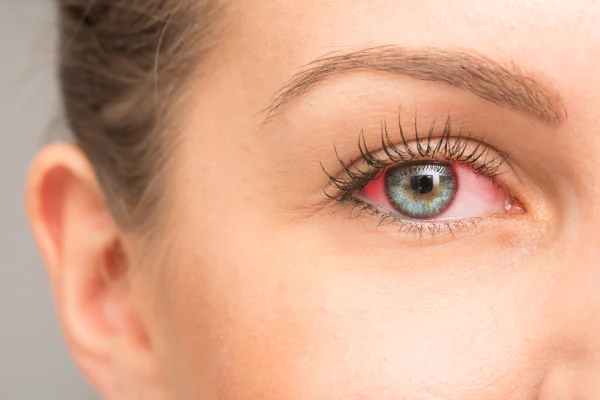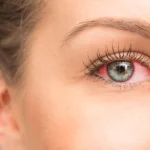With increased screen time in today’s time, the prevalence of dry eye conditions has also seen a rise. It is among the common eye-related problems faced by several people across the globe. Generally, dryness of eye affects the three layers of tears protecting your eyes. To be able to see clearly and comfortably, having a smooth tear is a must.
Irritation or disturbance in the layers causes discomfort and problem in the vision. Several factors can make your tear film dry up and create a hassle for you. Some of the major factors that can lead to dry eye syndrome are high screen time, ageing, allergic eye disease, smoking, vitamin A deficiency, etc.
Dry eye syndrome symptoms
- Burning or stinging sensation in the eyes
- Stringy or sticky mucus in or around the eyes
- Increased sensitivity to light
- Redness and sensation as if something is stuck in the eyes
- Facing difficulty wearing contacts and driving during nighttime
- Watery eyes, eye fatigue, and/or blurred vision
If you relate to these signs and symptoms of dry eye condition, it is your cue to do something about it. Do not take the symptoms casually or neglect them for too long or they may keep worsening with time.
What happens if you leave dry eyes syndrome untreated?
You become prone to facing the following problems if you do not pay attention to treating dry eye.
- The damaged surface of the eyes: When left unattended, the dryness may become severe and may even cause inflammation, scraping of the corneal surface, and loss of vision.
- Eye infections: Tears protect the eye surface from catching any infection or allergy by lubricating the corneal surface.
- Affected life quality: Carrying out daily life activities like driving, reading, etc. can become difficult while dealing with dry eye syndrome.
Get rid of dry eye syndrome treatment to experience clear and comfortable vision
If you have a dry eye condition, get in touch with an ophthalmologist to avoid prolonged or severe damage to your eyes. Your eye specialist will run a few tests to check the amount of tears the eyes produce and how fast they evaporate. Based on the diagnosis and the severity of the condition, the doctor prescribes eye drops (also known as artificial tears). If you have developed an infection, you will also be prescribed antibiotics. In some patients, curing the underlying health problem helps in subsiding symptoms of dry eyes. If any medication is making your eyes dry and prone to inflammation, the doctor will look into your medical history and help in making amendments.
The latest treatment for dry eye syndrome involves plugging the tear duct openings with small punctal plugs made up of silicon. Such plugs block the opening in the inner corners of both the lower and upper eyelids. This is helpful in conserving tears, both natural and artificial that the doctor may have added.
Other remedies that doctors suggest to deal better with the dry eyes:
- Lubricant eye drops: Dry eyes can cause much irritation and may even lead to inflammation if not lubricated. Use the prescribed lubricant eye drops at regular intervals. The dryness goes away within a few days only. It is the most common dry eyes remedy that works effectively in most mild cases.
- Wear sunglasses: If you have to step out of the house, especially if there are chances of exposure to sun or dust, you must wear sunglasses. Doing so prevents your eyes from further damage.
- Avoid allergens: Common allergens or triggers for dry eyes include smoke, wind, facing air vents, etc. Wear eyeglasses to have some protection against these triggers.
- Practice the 20/20/20 rule: Whether reading or working online on a computer, it is crucial to take a break every 20 minutes shift your eye focus 20 feet away for 20 seconds and blink often.
- Use warm compressions over eyes: You can ask your eye specialist to prescribe you a heat mask for your eyes. Generally, it is okay to leave the eye mask on for 5-10 minutes. Doing so eases out the symptoms and enables the eyes to increase lipid production
- Use a humidifier: Based upon the humidity levels around you, especially during winters if you use heat blowers, keeping a humidifier can offer great relief to dry eyes.
- Consume omega 3 fatty acid: Taking omega 3 supplements helps in nourishing the eyes and eases out the symptoms of dry eyes.
Bottom Line
Dry eye syndrome is a chronic problem and does not easily go away on its own. It can be frustrating to manage symptoms without getting proper medical care. Remember that millions of people deal with dry eye syndrome and reach out to expert doctors for help. Also, it can be unsafe to indulge in self-medication. The best treatment for dry eyes depends upon the diagnosis. If you have been in doubt, book your appointment with experienced eye specialists at the Centre for Sight.





